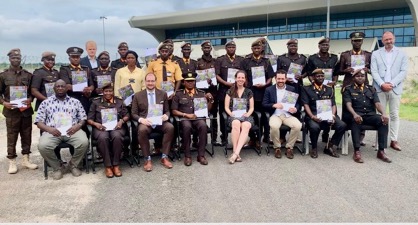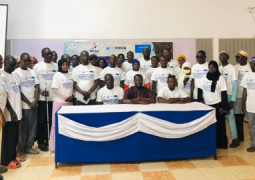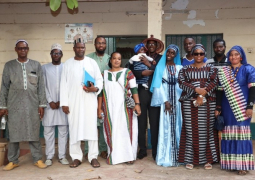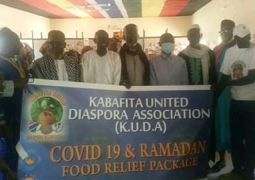
The training in essence is geared towards building the capacity of border officials on customer care, quality and hospitality service at the different duty posts at the airport, land and sea borders.
Also, the week-long session is expected to arm participants with in-depth knowledge and skills needed to serve with diligence and openness.
Welcome the gathering, Mariama Nyang, Commissioner, The Gambia Immigration Department at the Banjul International Airport, explained that GID being part of the security stakeholders, is committed to providing services in making better provision to control the emigration into and within the country.
This, she believed, would help foster and ensure robust and diligent services to the people and visitors.
“Of recent, the GID has received a good number of repatriations on voluntary, humanitarian and forced returnees or deportations.”
She revealed that the department with its sister forces at the Banjul International Airport comes together in dealing with the reception of these people.
To that end, she commended the European Union for its support, acknowledging that EU has always been a bedrock in rendering capacity building to the department staff especially those at Banjul International Airport.
On issues relating to their daily operations, Commissioner Nyang, maintained that GID personnel have also benefited from various in-service trainings especially in the areas of international best practices, migration, verification, passenger profiling, among a host of others.
Lara Melse, senior advisor, Ministry of Justice and Security in Netherlands, while expressing delight with the warm reception accorded to the Dutch delegation on arrival, noted that this is the second training organised for GID personnel in the country targeting staff at the country’s borders.
The training, she added, was requested by DG GID to further professionalise the department.
“The Hostmanship is the art of making people feeling welcome. It is a philosophy that has been introduced to colleagues from several immigration departments across the globe. It actually started with our own border control at the international airport of Schiphol in the Netherlands.”
She used the forum to call for more collaboration especially in the area of migration.
Tim Krap, first secretary at the Netherlands Embassy based in Dakar, Senegal, explained that the move is part of broadening the already existing cooperation between The Netherlands and The Gambia.
He underscored the importance of the training especially in the context of migration and curbing the smuggling of migrants, noting that The Netherlands will also continue to support the country in strengthening human rights.
The Dutch diplomat extolled the beautiful nature and hospitality of Gambians in attracting a good number of Dutch tourists into the country, saying on annual basis about 30,000 Dutch tourists visit the country, some of whom have now preferred to stay in the country.
That, he said, is largely due to the receptive nature of Gambians, pointing out that Dutch people are always enthusiastic about The Gambia and this has motivated some to engage in the economic component and businesses in the country.
He spoke highly of the flourishing bilateral ties that exist between The Gambia and The Netherlands.
Declaring the forum open, Ebrima Mboob, Director General of The Gambia Immigration Department (GID), expressed gratitude to the Government of Netherlands for their insightful foresight in introducing this important capacity building initiative.
He equally lauded the Government of The Gambia for its unwavering support in ensuring the success of this second phase of the training.
“The first phase of the training, which took place in June 2024, marks a significant milestone in the department’s journey towards achieving excellence in service delivery especially at the Banjul International Airport. The outcomes of that session were invaluable, laying the groundwork for a more efficient and welcoming operational system for the airport staff. Today, we stand on the threshold of the phase, which will build upon the success of the first phase, taking us deeper into the principles and practices of Hostmanship.”
DG Mboob thus urged participants to approach the training with the seriousness it deserves as the knowledge they will gain over the course of the interface will benefit not only them but would also help in the development of others.
Pa Ousman Manneh, a participant delivered the vote of thanks.





